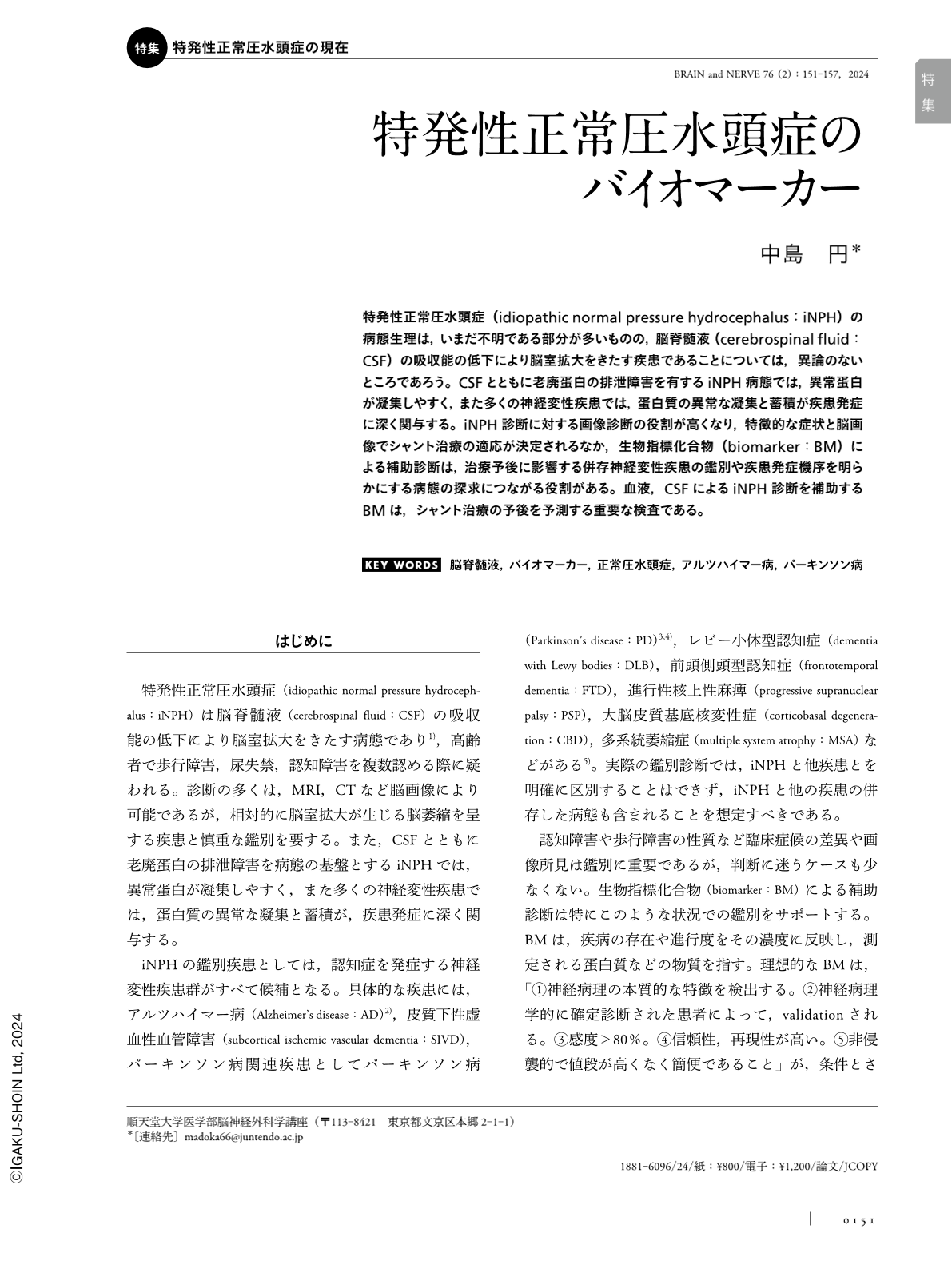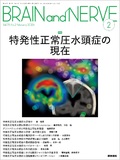Japanese
English
- 有料閲覧
- Abstract 文献概要
- 1ページ目 Look Inside
- 参考文献 Reference
特発性正常圧水頭症(idiopathic normal pressure hydrocephalus:iNPH)の病態生理は,いまだ不明である部分が多いものの,脳脊髄液(cerebrospinal fluid:CSF)の吸収能の低下により脳室拡大をきたす疾患であることについては,異論のないところであろう。CSFとともに老廃蛋白の排泄障害を有するiNPH病態では,異常蛋白が凝集しやすく,また多くの神経変性疾患では,蛋白質の異常な凝集と蓄積が疾患発症に深く関与する。iNPH診断に対する画像診断の役割が高くなり,特徴的な症状と脳画像でシャント治療の適応が決定されるなか,生物指標化合物(biomarker:BM)による補助診断は,治療予後に影響する併存神経変性疾患の鑑別や疾患発症機序を明らかにする病態の探求につながる役割がある。血液,CSFによるiNPH診断を補助するBMは,シャント治療の予後を予測する重要な検査である。
Abstract
Although the pathophysiology of idiopathic normal pressure hydrocephalus (iNPH) remain largely unknown, it is well acknowledged that iNPH causes ventricular enlargement due to decreased cerebrospinal fluid (CSF) absorption. Pathophysiologically, it is supposed that the excretion of waste proteins is impaired along with CSF. Hence, they tend to aggregate, and in many neurodegenerative diseases, abnormal aggregation and accumulation of such proteins are deeply involved in the pathogenesis of disease. Biomarkers (BMs) contribute to diagnosis by identifying comorbid neurodegenerative diseases that may affect the prognosis of treatment, as well as exploring the pathogenetic mechanisms of iNPH. In addition, BMs can be an important prognostic test for shunt therapy.

Copyright © 2024, Igaku-Shoin Ltd. All rights reserved.


